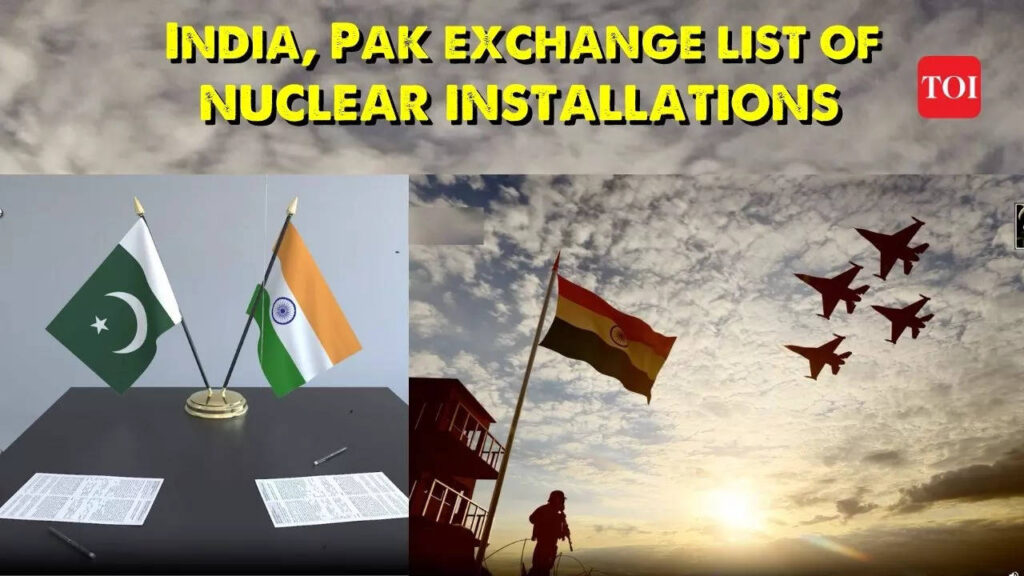India and Pakistan today simultaneously exchanged lists of nuclear facilities in New Delhi and Islamabad, the Indian Ministry of External Affairs said. However, India and Pakistan have not disclosed this information about their nuclear installations and weapons exchanged.
It is reported that India and Pakistan have exchanged the list of their nuclear facilities on January 1, following an agreement that has been going on for more than three decades. which is covered by the Treaty on the Prohibition of Attacks on Nuclear Facilities.
The treaty was signed between the two countries in 1988 and ratified in 1991 to prohibit attacks on nuclear facilities. This was the 34th annual list exchange since the list exchange began on January 1, 1992.
The Stockholm International Peace Research Institute (SIPRI) estimates India and Pakistan to have 172 and 170 nuclear weapons in 2024 respectively.
“India, Pakistan and North Korea are seeking to acquire the capability to mount multiple nuclear warheads on ballistic missiles; which Russia, France, the United Kingdom, the United States and, more recently, China have already achieved,” SIPRI noted in its June report.
According to the Arms Control and Non-Proliferation Center (ACA), Pakistan currently has six nuclear-capable land-based ballistic missile systems. These include short-range (less than 1000 km) and medium-range (1000-3000 km) missile systems. Pakistan is also working on developing three medium-range ballistic missiles. One of them is Ababil. It can carry multiple re-entry vehicles (MIRVs) capable of independent targeting.
The ACA said in an August 2023 report, “Some of Pakistan’s short-range ballistic missiles, particularly the new Nasr (Hatf-9), are not sufficient to attack Indian targets. According to some experts, the Nasr is likely to be used in combat against Indian forces.”
According to reports, land-based nuclear forces in Islamabad use road-mobile delivery systems. These systems have expanded greatly in recent years.
Pakistan is actively developing its nuclear arsenal. Experts estimate that by 2025, Pakistan will become the fifth largest nuclear arsenal in the world. In this, the number of nuclear weapons of the country will reach about 200. Sources: ABC News and The Hindu.

